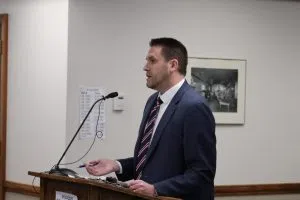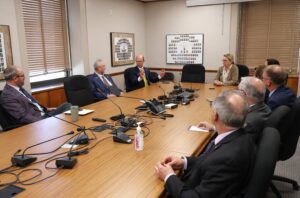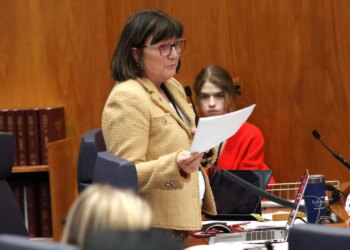Enhancing Transparency: North Dakota’s New Bill for Public Officials
!North Dakota Secretary of State Michael Howe
Image courtesy of Mary Steurer/North Dakota Monitor
Introduction of Annual Interest Statements
In a recent legislative move, the North Dakota House made a significant decision by approving House Bill 1469 with a vote tally of 64-26. This new legislation mandates that public officials submit annual statements of interest, enhancing accountability within the ranks of governance.
Current Standards vs. New Legislation
Under existing regulations, public officials are only obligated to file an interest statement once at the start of their candidacy or upon appointment to their position. The updated bill stipulates that statewide officials will continue to file these forms through the Secretary of State’s Office, while local government representatives will be required to submit theirs through designated local channels.
Advocating for Greater Clarity and Transparency
Leading this charge is Republican Representative Glenn Bosch from Bismarck, who championed House Bill 1469. Bosch believes the incorporation of annual filings will not only foster increased transparency but also streamline the process for elected officials when submitting these documents.
“By having an annual requirement in place, we hope it brings more clarity and eases our obligation when it comes time to fill out these forms,” stated Bosch during discussions on the House floor.
The Call for Accountability
This change reflects a growing trend among states towards reinforcing ethical conduct and openness in public service. Currently, many states across America are adopting similar measures; according to recent studies conducted in 2023, over half have implemented mandatory disclosures on conflicts of interest specifically aimed at maintaining integrity within government practices.
Conclusion: A Step Towards Ethical Governance
House Bill 1469 marks an essential step toward ensuring ethics become a fundamental part of North Dakota’s political culture. As other regions monitor this development closely, there will likely be ongoing discussions about best practices regarding transparency within all levels of government.







